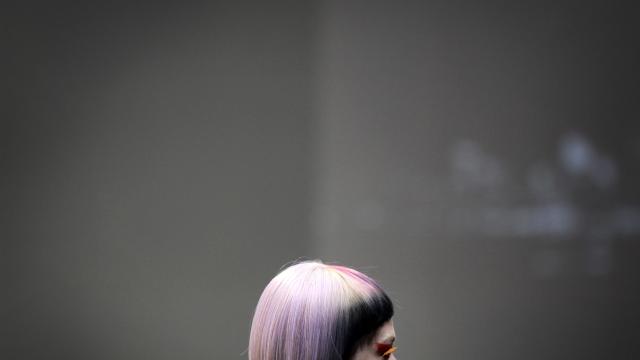If you’re a woman, regularly colouring or straightening your hair might come with a hidden risk, according to new U.S. government-led research. The study found a link between using permanent hair dye and straightening products and an increased risk of breast cancer in women, especially for black women.
Researchers from the National Institutes of Health looked at data from an earlier government project that studied the long-term health of healthy women in the U.S. whose sisters had earlier developed cancer, aptly named the Sister Study. As part of the project, women were asked about their use of hair products over the 12 months prior to their enrolling in the research. Using this data, they tracked the health of some 45,000 U.S. women between the ages of 35 to 74 over an average of eight years.
Women who reported regularly using permanent hair dyes before the study began, they found, were 9 per cent more likely than women who didn’t use hair dye to develop breast cancer. And those who used straighteners were 18 per cent more likely—an increased risk that shot up to 30 per cent for women who used straighteners every five to eight weeks.
The study’s findings were published Tuesday in the International Journal of Cancer.
As is often the case in studying cancer risk, these sorts of studies can only indirectly suggest that something causes cancer. And while some research has pointed to a link between hair dye and cancer, the evidence as a whole has been mixed. A 2018 review that looked specifically at breast cancer, however, did find a positive link to hair dye products.
Biologically speaking, it’s certainly possible that hair dyes could cause cancer. These products are thought to contain some 5,000 different chemicals, some of which are known to be carcinogenic in isolation. Our risk of cancer can also be affected by lots of different factors that amplify one another, including our ethnicity.
In the new study, for instance, the team found that black women had a much higher increased risk—60 per cent—if they used hair dyes every five to eight weeks, compared to black women who didn’t. Both white and black women had a similar increased risk when it came to hair straighteners, but black women tend to use these products more often, the authors noted.
Of course, cancer is a complicated disease, and few things that can cause cancer increase our risk by much. Out of the 46,000 women included in the study, for instance, around half reported using hair dye regularly. Overall, 2,764 women (around 17 per cent) developed cancer during the study’s length. So a relative risk increase of 9 per cent among women who used hair dye, while not nothing, amounts to a very small increase in absolute risk.
Given the mixed evidence so far, the authors say there still needs to be more research done to confirm this link. But it’s perfectly reasonable to stop using hair dye and straighteners if you’re really worried. And there could be ways to lessen your already small possible risk.
The researchers note that women who have their hair professionally dyed and straightened, for instance, might have a smaller increased risk than those who do it themselves (prior research has found that hairdressers have an elevated cancer risk), and darker hair dyes likely douse users in more of these concerning chemicals.
“We are exposed to many things that could potentially contribute to breast cancer, and it is unlikely that any single factor explains a woman’s risk. While it is too early to make a firm recommendation, avoiding these chemicals might be one more thing women can do to reduce their risk of breast cancer,” study author Dale Sandler, chief of epidemiology at the NIH’s National Institute of Environmental Health Sciences, said in a statement released by the NIH.
